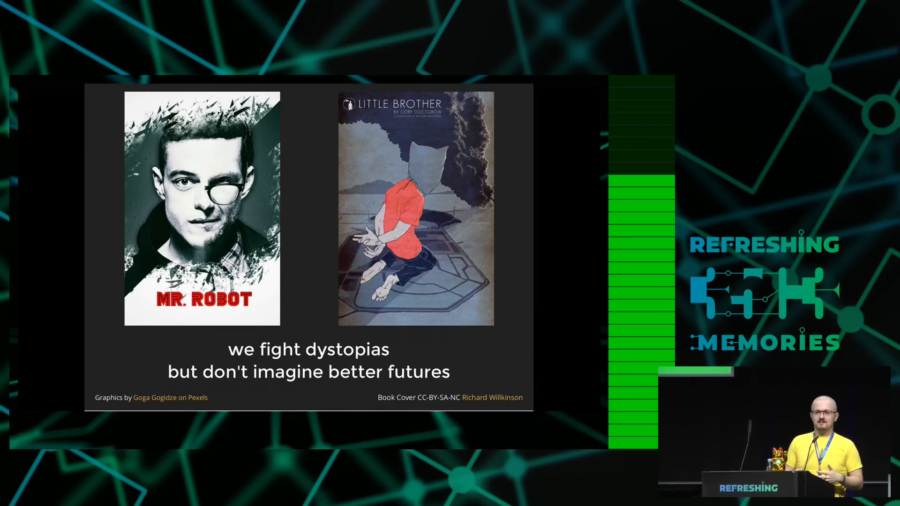Pawel Ngei: So, hello. My name is ALXD, and I wanted to talk about stories. And especially about hacker stories, because for the last two years I’ve been researching hacker values in popular culture and the types of stories we tell. Because as hackers we have a lot to say. We have a lot of proposals on how technology should work in this society, how we want to avoid all the dangers we can see that others cannot see. But we do a very very bad job at communicating it. Whenever we try to talk about net neutrality, about free software, people see us like blackhats, like conflict-mongers that are there only to smash the system, to destroy their bank accounts, and to basically bring trouble.
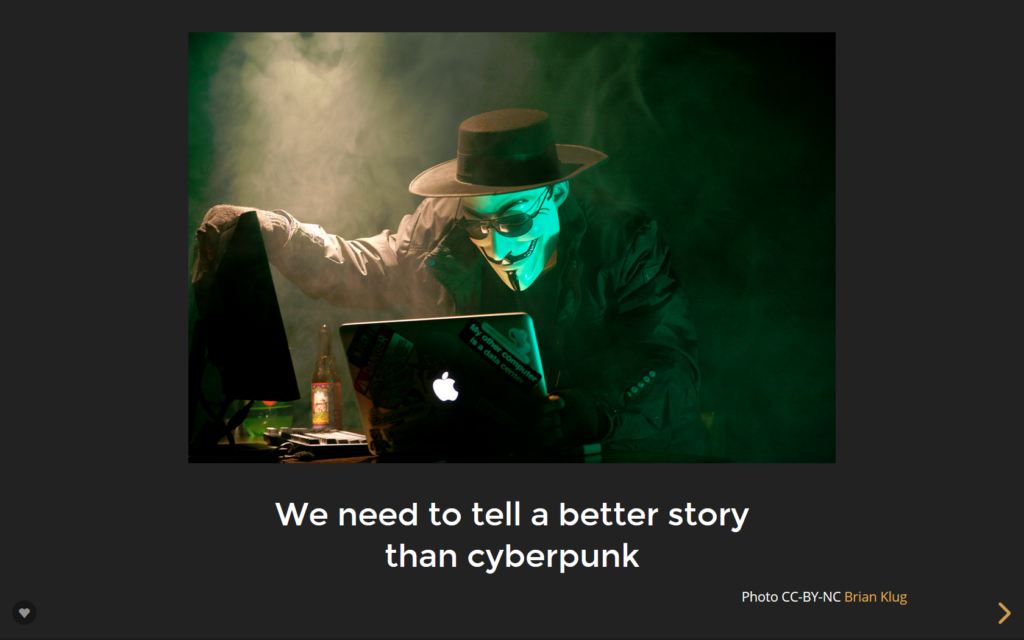
Anonymous Hacker by Brian Klug
And the problem is that we need to tell stories not only produce whitepapers. Because most of the people, most of the general public, will not read the whitepapers. They want to hear stories and they need to have in mind that there may be problems if somebody uses only closed solutions. There may be problems if somebody basically buys only closed corporate stocks and is totally dependent on closed social media.
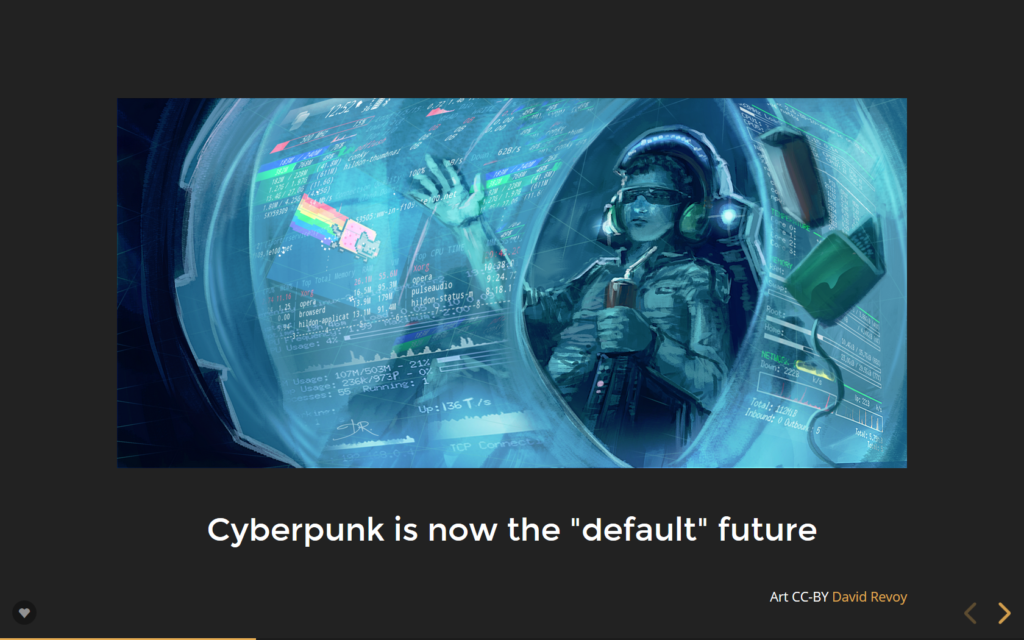
Tears of Steel concept art by David Revoy
The cyberpunk genre started as a warning, but sadly it became our default future. And if you talk to a lot of non-technical people, you can see that they see cyberpunk as basically the future. If they see some new piece of technology, they don’t say, “Oh, it’s so futuristic,” they say, “Oh, it’s so cyberpunk.” And especially outside of Europe, outside of the US, you can see a lot of makers, a lot of people that are actually wishing for a cyberpunk future because they wish for better technology, for better integration of technology with our bodies, completely ignoring the fact that cyberpunk actually proposes a lot more. That cyberpunk introduces the constant surveillance, the megacorporations, and a total lack of power among the regular people.
And this all comes in a bundle. So whatever people dream of cyberpunk future, we actually normalize those things. And it’s much easier to accept surveillance. It’s much easier not to rebel against corporations, against a lot of solutions that are bad for society if we see it constantly.
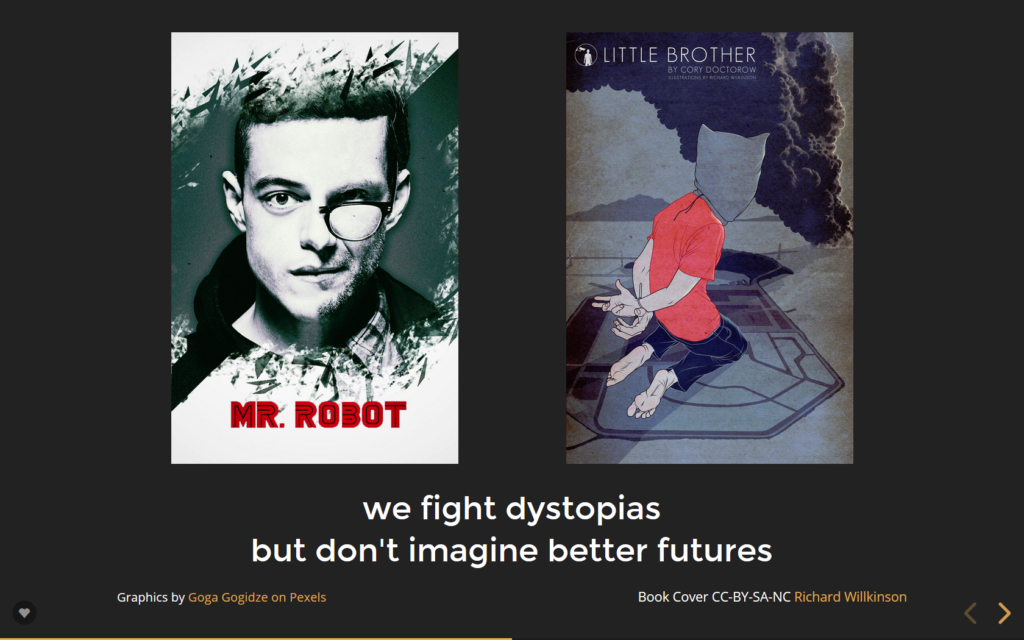
fsociety wallpaper by Goga Gogidze;
Little Brother book cover by Richard Wilkinson
The stories that we tell as hackers are usually stories of rebellion against that. And hackers are again seen as some exceptional individuals that are fighting the system, and it’s always fighting the system. There are very very very few works that actually tell about our values about free software, about technological neutrality, that are accessible to regular people that can talk about the whole society. And sadly, with those we only strengthen dystopias, because we agree to actually be written in the cyberpunk narrative as those fighters that are the element of the cyberpunk. And also we alienate ourselves farther from the society and people in government, people in different countries are much less likely to talk to us when it comes to giving any advice because we are the conflict-mongers.
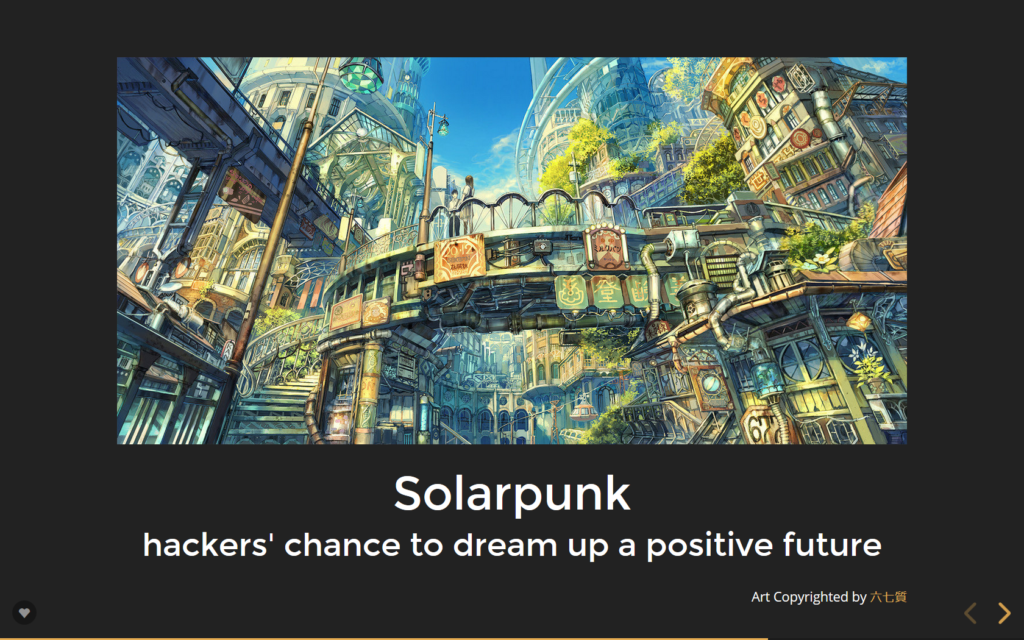
未来景イノセンス・カバーイラスト by 六七質
There is an alternative that’s a chance that we can take. There’s a new genre which is being created right now. The name is “solarpunk” and it’s supposed to be an alternative to the cyberpunk future. Solarpunk is a utopia, or at least a hopeful future. It’s a future that is available for everybody, not for only exceptional individuals, which is very green and eco-friendly. Where everything is designed to be as green as possible. Where there are horizontal power structures. So the things that we know from our hacker spaces, the things that we know from the anarchists and that is all around us at CCC, they propose it for the whole society so that every schoolteacher, every baker, every average regular person, is able to take part in that. And this is a great platform for us to tell the actual hacker stories. To tell about our adventures, our problems that we have as society within our groups, and a platform to tell about distributed technology and open source and free software.
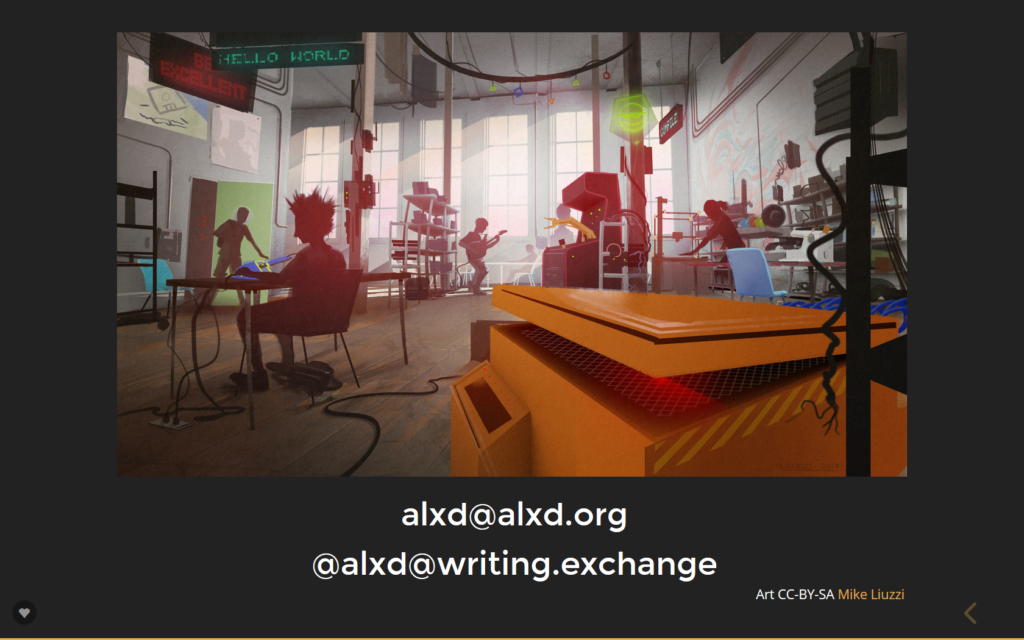
So I want to tell about a hacker space in this way. This is an art that was created by Mike Liuzzi, and please contact me on my email or Mastodon if you would like to discuss this topic. Thank you.
